Paris doesn’t sleep. Not really. When the sun dips below the Seine and the streetlights flicker on, the city sheds its daytime charm and slips into something wilder, quieter, and more intimate. This isn’t just about drinking or dancing-it’s about rhythm, history, and the quiet art of staying up late in a city that invented the idea of the night out.
The Legacy of the Cabaret
Start with the Moulin Rouge. Not because it’s the biggest, but because it’s the reason Paris nightlife became legendary. Opened in 1889, it wasn’t just a place to see dancers in feathers-it was rebellion dressed in sequins. Women danced on tables, men in top hats leaned in too close, and the music didn’t stop until the early hours. Today, the Moulin Rouge still runs shows every night, but the real magic isn’t in the spectacle-it’s in the fact that it’s still here. People come from Tokyo, São Paulo, and small towns in Minnesota just to sit in a velvet seat and watch a tradition that outlasted wars, revolutions, and trends.
But the cabaret isn’t just one place. In Montmartre, you’ll find smaller, grittier spots like Le Chat Noir, which started as a satirical café in the 1880s and became a hub for artists, poets, and anarchists. The modern version doesn’t have the same political edge, but it still feels alive. The lights are dimmer, the crowd is younger, and the music blends jazz, chanson, and electronic beats. You won’t find a tourist brochure here-just locals who know the right table, the right drink, and the right time to leave.
The Late-Night Café Culture
After the cabarets close, the cafés take over. Not the ones with outdoor tables and croissants at 9 a.m.-the ones that stay open until 5 a.m. on weekends. In the 10th and 11th arrondissements, places like Le Comptoir Général and La Belle Hortense turn into living rooms for the night owls. There’s no dress code. No cover charge. Just a long bar, a few mismatched armchairs, and a playlist that moves from French indie rock to old-school soul.
These cafés aren’t designed for tourists. They’re built for people who need to talk after midnight. A student finishes their thesis at 3 a.m. and walks in for a coffee and a slice of cake. A musician who played a gig at Le Petit Bain drops by to listen to a friend’s set. A couple from Lyon, on a weekend trip, sit quietly, sipping red wine and watching the rain hit the windows. There’s no pressure to order, no rush to leave. Time stretches here. The espresso machine hums. The bartender remembers your name after one visit.
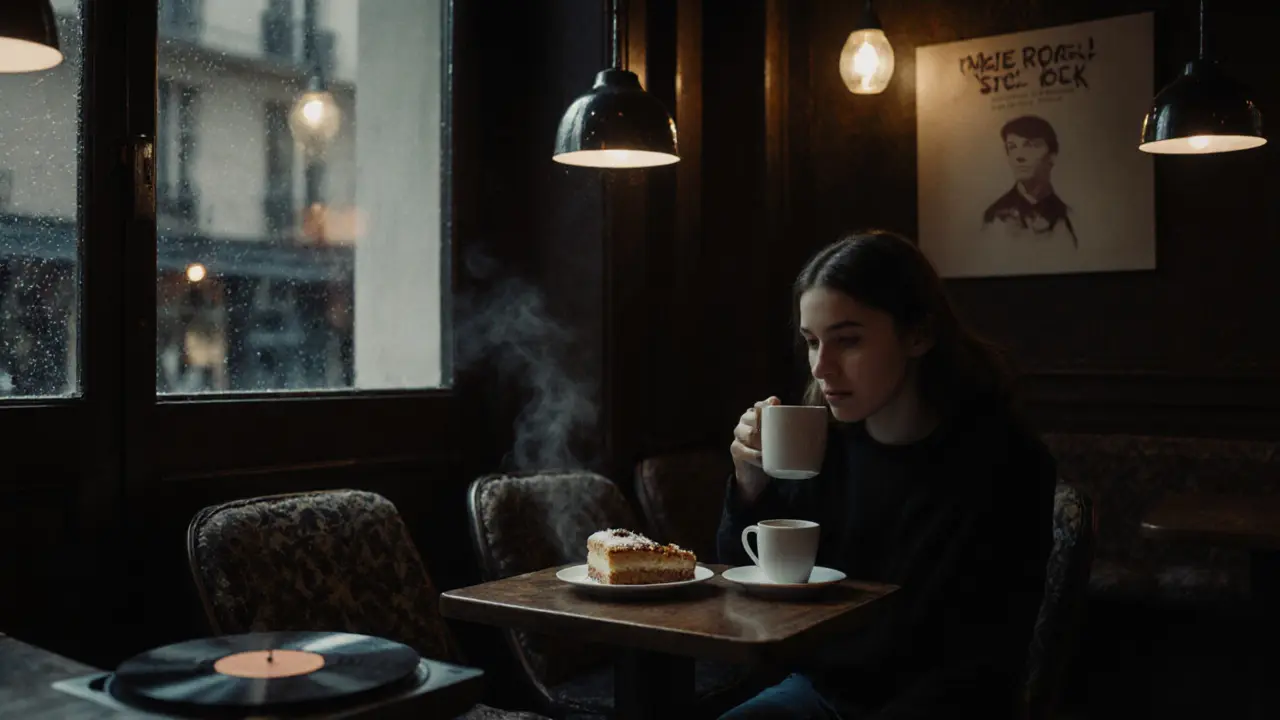
The Underground Bars and Speakeasies
Paris has over 120 hidden bars, and most of them don’t have signs. You find them by word of mouth, by following a narrow alley past a shuttered bookstore, or by asking the doorman at a jazz club where he goes after his shift. Le Chateaubriand doesn’t look like a bar-it’s a restaurant with a back room that opens after 11 p.m. You need to know the password. Or you don’t get in.
At Bar Hemingway in the Ritz, the cocktails are $28, but the silence is priceless. The walls are lined with books, the chairs are deep, and the ice is hand-chipped. It’s the kind of place where a French writer might sit alone for two hours, sipping a dry martini and watching the city outside blur into streaks of light.
Then there’s Le Syndicat in the 10th, where the bartender makes drinks using herbs grown on the rooftop. No menu. You tell him your mood-he gives you a glass. One night, it’s a gin drink with elderflower and black pepper. Another, it’s a bourbon with smoked tea and orange peel. You don’t know what you’re drinking until it’s in your hand. That’s the point.
The Jazz Clubs and Improvised Nights
Paris has more jazz clubs than any other European city. Not because it’s trendy-it’s because jazz found a home here in the 1920s when Black American musicians fled segregation in the U.S. and landed in Saint-Germain-des-Prés. Today, clubs like Le Caveau de la Huchette and Sunset/Sunside still pulse with the same energy.
At Le Caveau, the floor is sticky with spilled wine and the air smells like saxophone reeds and old wood. The band plays without sheet music. They trade solos like conversations. The crowd doesn’t clap between songs-they wait. You feel the music in your chest before you hear it. It’s raw. It’s real. And it ends when the musicians decide it’s over, not when the clock hits 2 a.m.
On Sundays, Le Petit Bain turns into a floating jazz club on the Seine. You board a converted barge, sip cider from a paper cup, and listen to a trio play under string lights. The water ripples. The city glows. No one checks your ID. No one asks why you’re alone. You just stay until the boat docks.
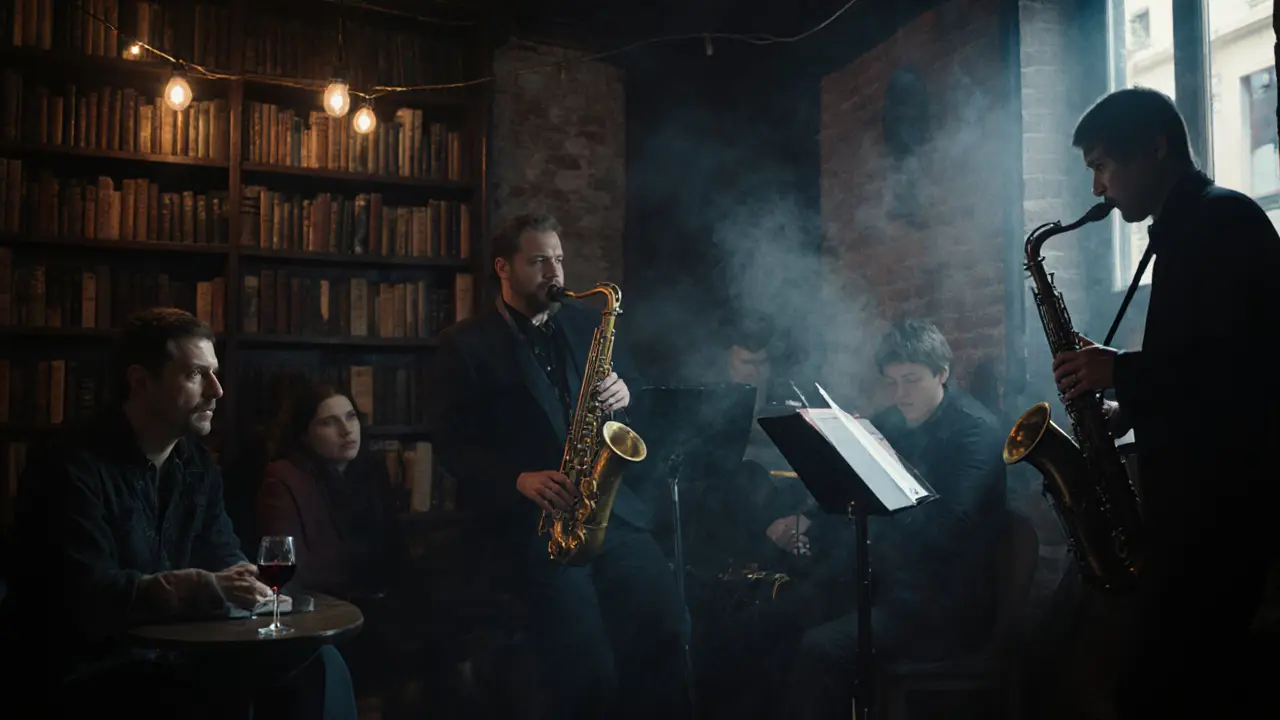
The Midnight Snack and the 24-Hour Boulangerie
After the music ends, the hunger starts. Paris has dozens of 24-hour bakeries, but the best one is Boulangerie Utopie in the 11th. They bake baguettes until 4 a.m. and serve them warm with butter and sea salt. No sandwiches. No pastries. Just bread, cheese, and a glass of natural wine. You sit on a stool, eat with your hands, and talk to the baker-who’s been there since he was 17 and still wakes up at 3 a.m. every day.
Or head to Le Comptoir du Relais in Saint-Germain, where the kitchen stays open until 5 a.m. on weekends. The menu is simple: duck confit, foie gras toast, a bowl of lentils with smoked bacon. It’s not fancy. It’s not Instagrammable. But it’s the kind of food you remember years later-not because it was expensive, but because it tasted like the night.
When the Night Ends
Parisian nightlife doesn’t end with a bang. It ends with a sigh. A slow walk home under the bridge at Pont Alexandre III. A shared taxi with strangers who became friends for an hour. A final espresso at a corner café where the barista smiles and says, “Vous êtes de retour?”-you’re back already?
The city doesn’t care if you’re a tourist or a local. It doesn’t care if you’re 20 or 60. All it asks is that you show up. That you listen. That you stay awake long enough to feel it-the rhythm of a city that never truly closes its eyes.
What time do Parisian nightclubs close?
Most clubs in Paris close between 3 a.m. and 5 a.m., depending on the neighborhood and day of the week. In areas like Oberkampf or the 10th arrondissement, clubs often stay open until 5 a.m. on weekends. Some underground bars and jazz clubs don’t have strict closing times-they shut down when the last person leaves.
Is Paris nightlife safe at night?
Yes, most areas of Paris nightlife are safe, especially in the main tourist and cultural districts like Montmartre, Saint-Germain, and Le Marais. Pickpocketing can happen in crowded spots, so keep your bag closed and avoid flashing valuables. Stick to well-lit streets and avoid isolated alleys after 2 a.m. The city has a strong police presence near popular nightlife zones, and taxis and rideshares are widely available.
Do I need to book ahead for Parisian bars and clubs?
For big venues like the Moulin Rouge or major jazz clubs, yes-book tickets online. For smaller bars and speakeasies, you usually don’t need a reservation. Some hidden bars require a password or invitation, so ask around or check their Instagram. Weekends get crowded, so arriving before 11 p.m. helps you avoid lines.
What’s the best neighborhood for nightlife in Paris?
It depends on what you’re looking for. Montmartre for cabarets and vintage charm, Le Marais for trendy bars and LGBTQ+ friendly spots, Oberkampf for underground clubs and craft cocktails, and Saint-Germain-des-Prés for jazz and classic Parisian ambiance. Each has its own rhythm-choose based on your vibe, not your guidebook.
Can I find English-speaking staff in Paris nightlife spots?
In tourist-heavy areas, yes-most bartenders and staff speak at least basic English. In smaller, local spots, especially in the 10th or 11th arrondissements, staff might speak little to no English. But that’s part of the charm. Learn a few French phrases like "Une bière, s’il vous plaît" or "Merci"-locals appreciate the effort, and you’ll get better service.
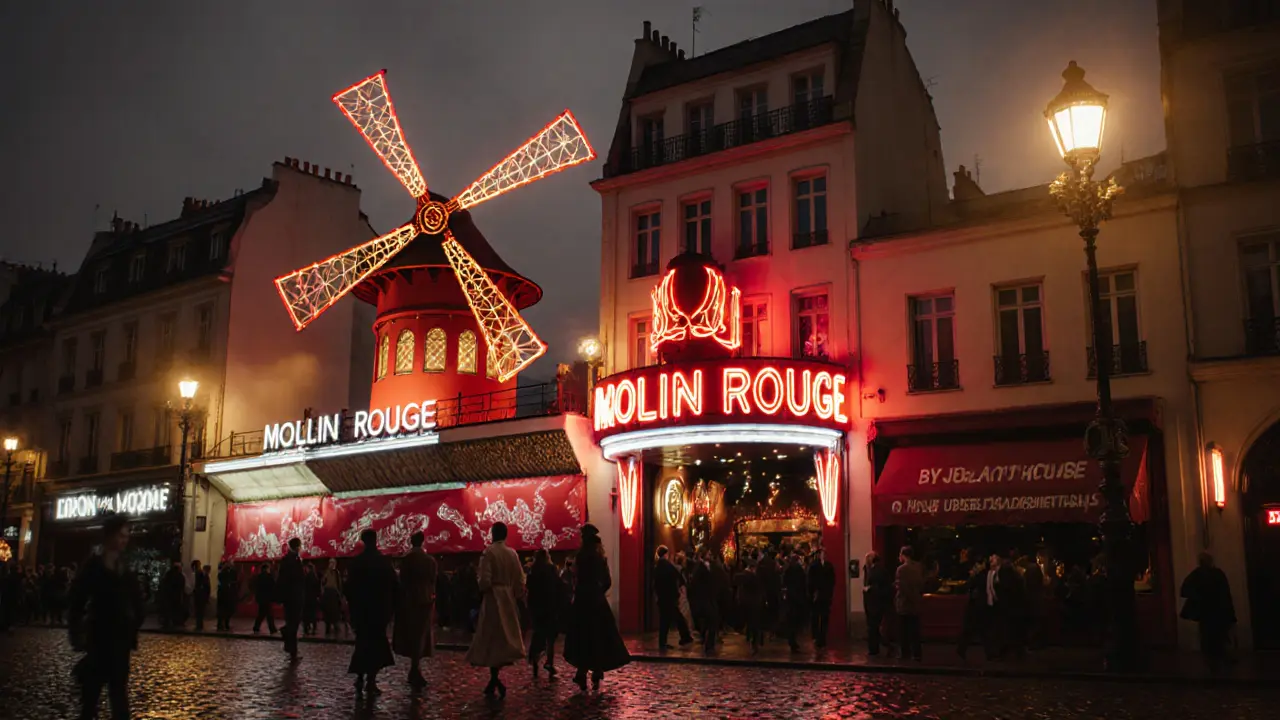

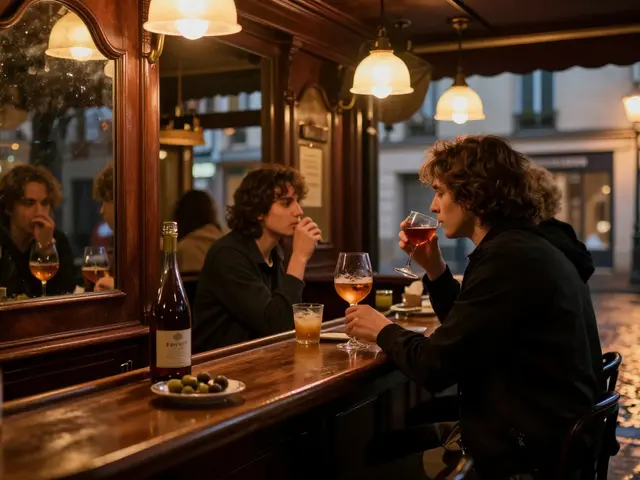
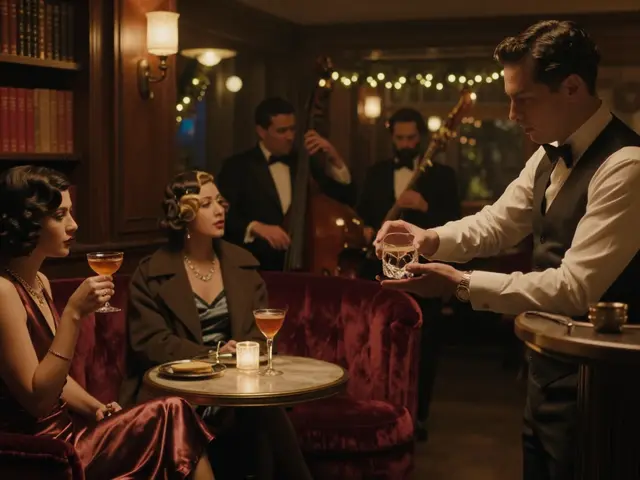
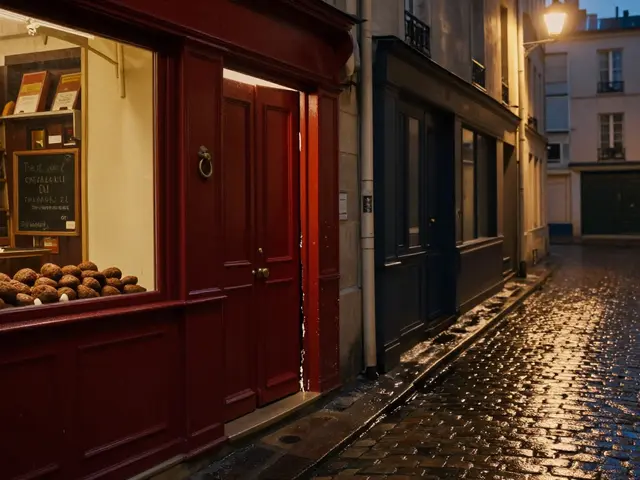
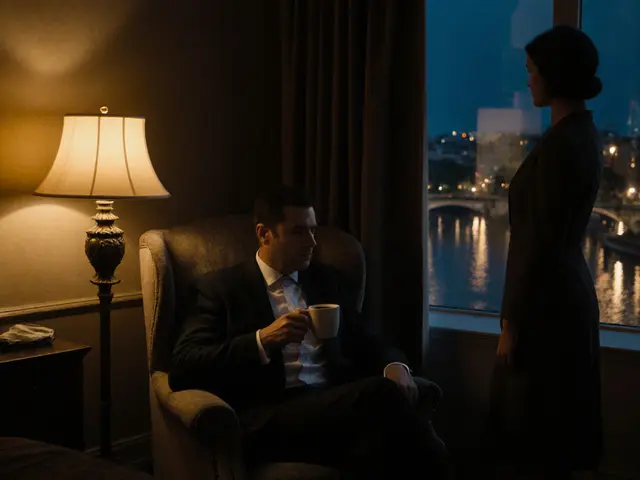
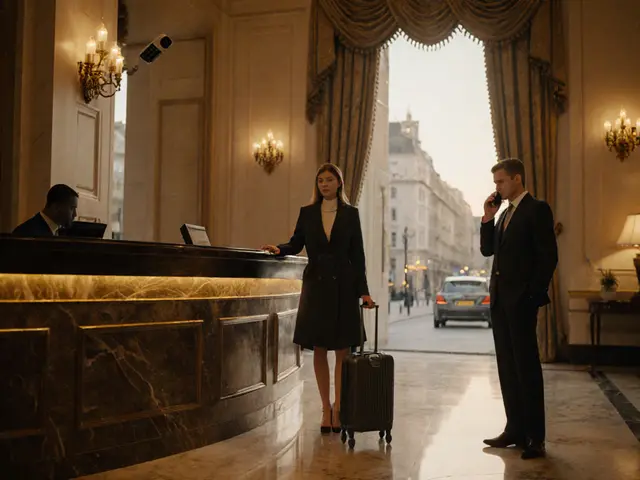

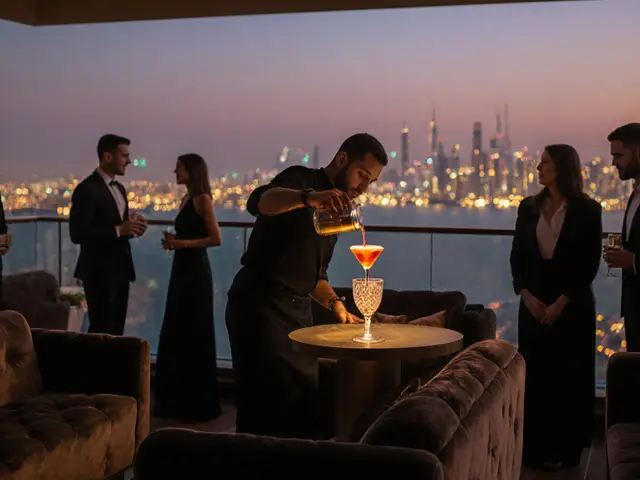
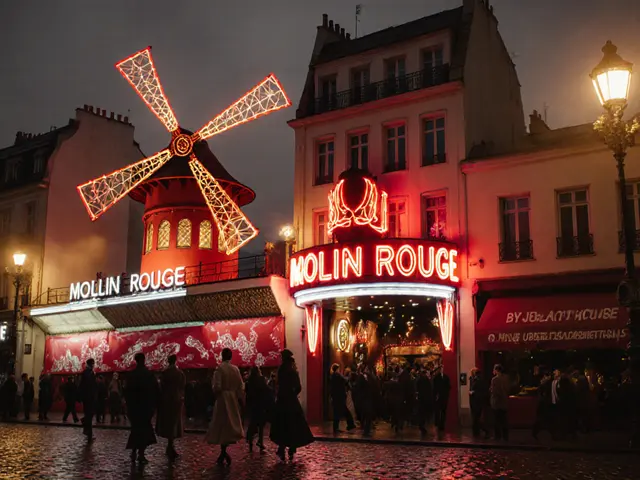
Write a comment